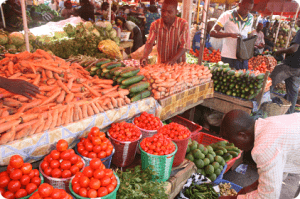Edo State is facing significant challenges due to the condition of roads, driving up food costs and threatening the livelihoods of farmers, who are lamenting the difficulty in transporting their produce to the market, resulting in spoilage and reduced income.
A sizable portion of the population in Edo State are involved in farming and food production. However, poorly maintained roads, especially in rural areas, have created setbacks for them, with many of these roads unpaved, riddled with potholes, and often become impassable during the rainy season. This is as muddy, flooded roadways disrupt connections between rural farms and urban centers like Benin City, complicating travel and transportation.
The presidential candidate, Peter Obi, lamented the hardship drivers experience due to the bad state of the roads in Edo State.
“On getting to Agbor Junction, I turned toward the direction of my destination. However, I was shocked by the very bad shape of the road which was almost not passable by car. I persisted and continued on the journey for about 25 minutes into the road until it became completely blocked by a faulty trailer that had impeded movement, causing a great gridlock,” Obi said.
Farmers who rely heavily on road networks to bring their produce to markets, said these conditions are a severe hindrance. The damaged roads make vehicles move slowly, causing delays that reduce the freshness of perishable produce. Additionally, the rough roads lead to higher fuel consumption on vehicles, which costs will eventually be passed on to consumers in the form of higher food prices. In some instances, poor roads have made certain areas inaccessible, leaving farmers with no means of reaching markets, resulting in food wastage and income loss.
Edo State poor road conditions discourage potential investments in agriculture. For both local and external investors, the challenges posed by inadequate road infrastructure are seen as barriers to efficient operations. Lack of investment hinders the growth and development of the agricultural sector, limiting opportunities for expansion.
Transportation issues and post-harvest losses reduce the supply of food products, leading to scarcity and driving up costs. Seasonal price fluctuations add to the burden, with food costs increasing during the rainy season when road conditions worsen, further limiting the supply of products like tomatoes, peppers, and vegetables.
The Edo State Governor should take steps to improve Edo State roads, which would benefit not only the agricultural sector but also the cost of living. Improved roads would lower transportation costs, reduce food wastage, and facilitate easier access to markets, helping stabilize food prices. Investments in infrastructure development are essential to enable Edo State agricultural potential in order to ensure food security and economic stability for residents.


